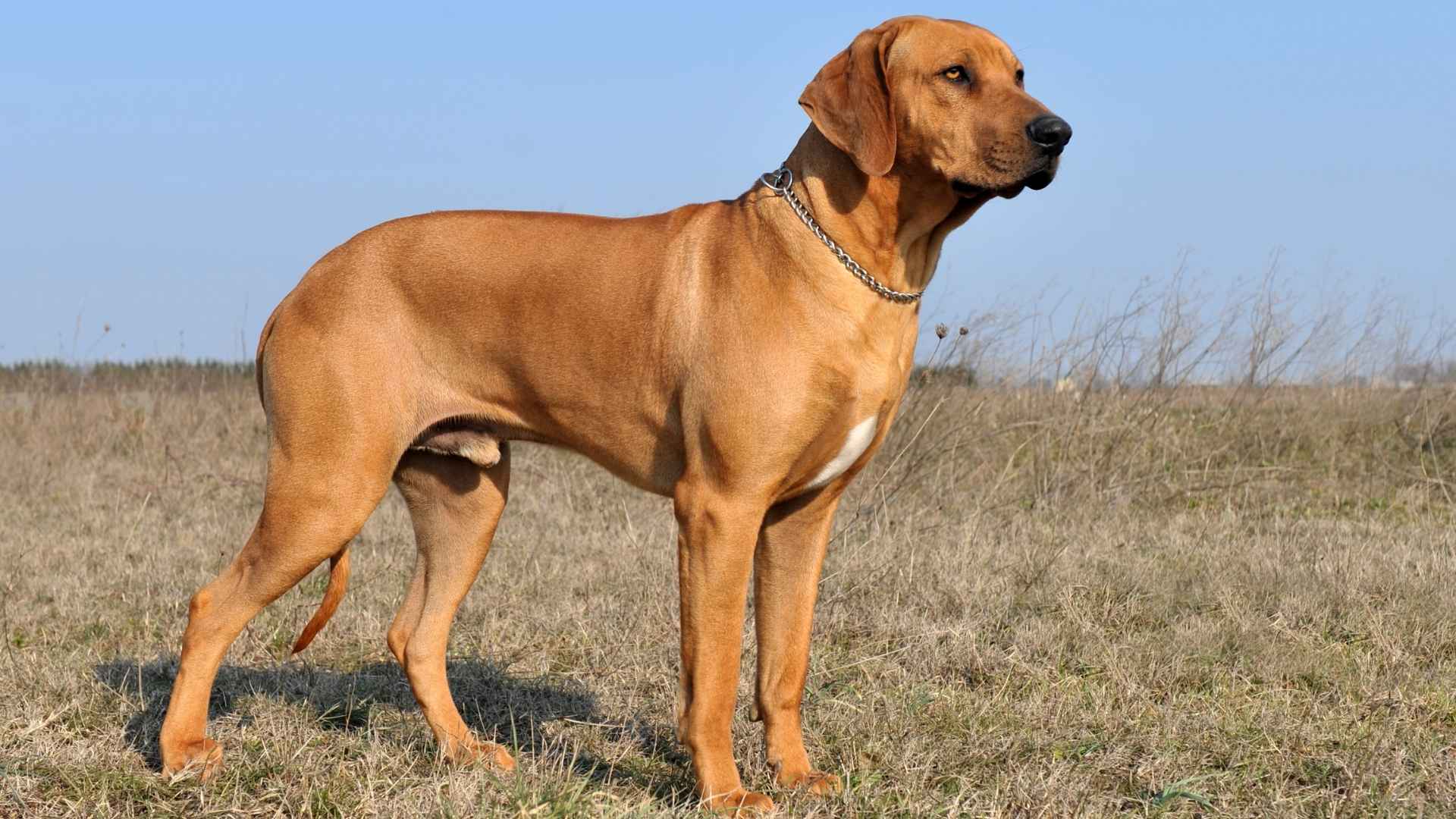The sun dips low over the savannah, and the shadows stretch long. In the distance, a lion’s roar echoes faintly. A herd of cattle grazes near a dusty village.
Among them stands a large, muscled dog—ears up, body still, eyes alert. It’s not a pet. It’s not a showpiece. It’s a working breed with a serious job. Across Africa, in both remote grazing lands and gated urban homes, certain dog breeds are relied upon for powerful, no-nonsense guarding.
These dogs protect livestock from apex predators and watch over families in isolated regions. They are calm when they need to be and fearless when it counts. Their reputation is earned through generations of work, not training manuals.
In the following sections, you’ll meet some of Africa’s strongest, most dependable dog breeds used for serious guarding work across fields, farms, and homes.
Dog Breeds Used for Heavy-Duty Guarding in Africa
1. Boerboel
The Boerboel was originally developed in South Africa to guard farms from predators and intruders. Its powerful build, strong jaw, and territorial instinct made it a dependable presence on large rural properties. It was trusted to work independently without constant direction.
Natural Watcher with Strong Focus
This breed is known for being steady and alert rather than reactive. It notices unusual movements quickly and quietly observes before acting. That natural vigilance has made it a long-standing favorite in real-world guarding situations.
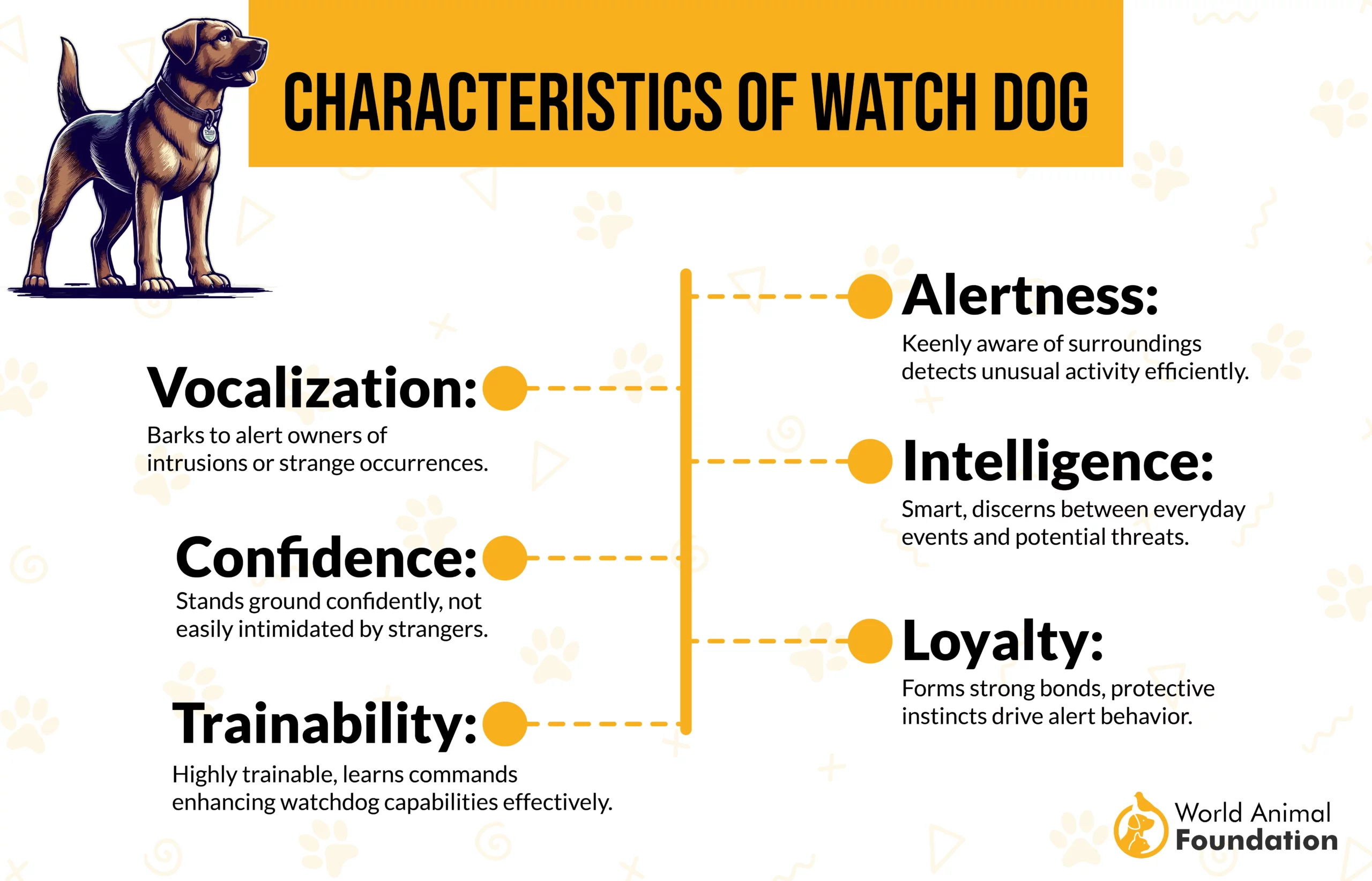
Protective Through Deep Loyalty
Boerboels are deeply bonded to the people they live with and take their role seriously, as mentioned in Orvis. Their loyalty makes them intuitive about who belongs and who doesn’t. They are careful around strangers but not aggressive without cause.
A Key Figure in African Dog Breeds
Among African dog breeds, the Boerboel continues to be used for tough security tasks in demanding environments. It handles heat well, works confidently in open spaces, and is respected across regions where reliable guard dog breeds are essential.
2. Rhodesian Rodgeback
Rhodesian Ridgebacks have the muscle tone and stamina to handle large areas without tiring. Their athletic movement and strong chase drive come from years of working in open, rugged landscapes. These qualities make them useful for managing movement around wide, unsecured spaces.
Confident but Measured in Behavior
They are naturally observant and don’t bark without reason, which is ideal for alert-based security. Ridgebacks take time to assess a situation before stepping in. This thoughtful behavior is appreciated by dog owners who need a protector that doesn’t overreact.
Protective Through Quiet Presence
Their loyalty runs deep, and once bonded, they quietly monitor their space with serious intent. Their instincts make them highly aware of unfamiliar activity, even when resting. That calm alertness supports homes where a strong but controlled presence is needed.
Valued Across Most African Dog Breeds
With their guarding instincts, they’ve earned respect across rural zones for perimeter defense. Among the African dog breeds, Ridgebacks are recognized for handling both environmental stress and fast-paced threats without losing focus.
3. Aidi
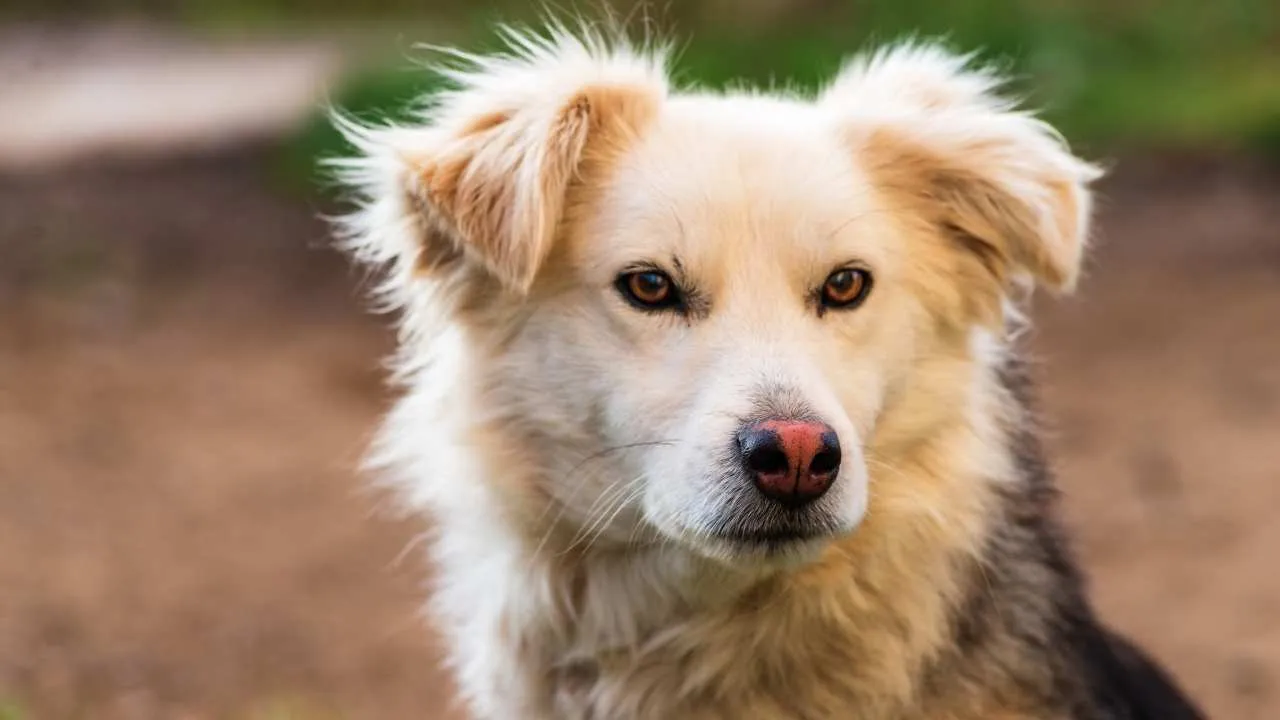
Did You Know: The Aidi is also referred to as the “Atlas Mountain Dog” due to its deep roots in guarding nomadic Berber camps in the Atlas region.
The Aidi is a mountain breed from North Africa, originally used to protect livestock and camps in the Atlas Mountains. It developed strength, agility, and environmental toughness through real working conditions. These traits remain part of its core behavior today.
Instinctively Protective and Sharp
This breed is known for its highly alert and territorial mindset. Its protective nature isn’t limited to one role — it naturally guards people, animals, and property. That makes it an active choice in areas where security and control are daily needs.

Energy That Requires Direction
Aidi dogs have high stamina and stay active throughout the day. Without tasks or regular mental stimulation, they can become restless or overly vocal. Proper structure and outdoor time help balance their strong guarding instincts.
Still Respected Among the Best Guard Dog Breeds
Within North Africa, the Aidi is still valued for its loyalty, weather resistance, and confident presence. It may not be widely known globally, but among the best guard dog breeds in its native region, it holds a respected place that’s tied to its long-standing utility.
4. Africanis
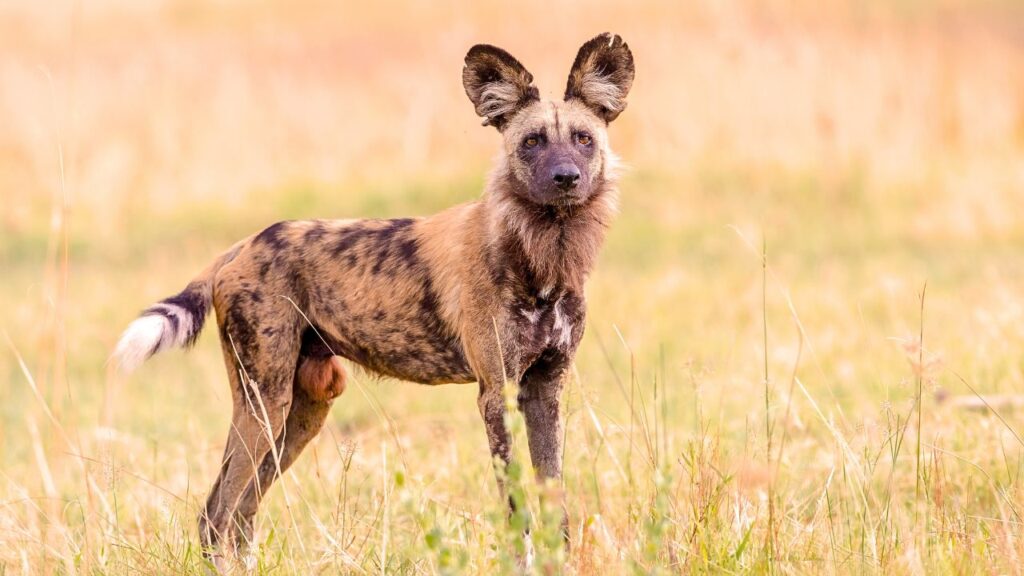
The Africanis is known for its sharp environmental awareness and fast reactions to movement or noise. It often remains quiet while observing, which makes its presence more effective during unexpected situations. This awareness has been valued in unstructured guarding roles.
Independent Nature with Strong Memory
This breed quickly remembers patterns, paths, and familiar individuals. It works best when allowed space to think and move with purpose, showing reliability without constant redirection. This mindset makes it different from other breeds used in structured tasks.
Trusted for Being Incredibly Loyal
Its loyalty is firm but not overly dependent, which makes it dependable in situations that require calm focus. Once bonded, it remains aware of its environment while still staying close to the people it trusts. That consistency builds confidence in its presence.
Shaped by Function, Not Fashion
The Africanis was originally bred for survival and real-world use rather than physical appearance. Its traits reflect generations of working ability, not selective looks, which helps it perform well in demanding outdoor spaces.
5. Azawakh
The Azawakh has finely tuned vision and hearing that allow it to pick up even faint disturbances. Its quiet, upright stance helps it monitor open spaces for long stretches. This calm intensity has long supported roles that rely on visual and auditory awareness.
Reserved Temperament, Strong Recall
It is naturally reserved with strangers but never uncertain in its surroundings, as highlighted in Zealandia Pets. The breed uses memory and environmental cues to assess changes without overreacting. This controlled response has made it valuable in settings that rely on disciplined animal behavior.
Requires Respect and Experienced Owners
The Azawakh needs handlers who understand independent thinking in dogs. It responds well to calm, clear leadership and prefers a routine with consistent expectations. Experienced owners often describe it as deeply responsive when mutual trust is established.
Fast, Alert, and Fiercely Loyal
Although lean in frame, the Azawakh is fast, driven, and purpose-focused. It builds strong bonds with its household and remains fiercely loyal to those it accepts. Among working dogs, it holds a reputation for steady performance in high-heat environments.
6. Armant
The Armant responds swiftly to movement while staying composed in unpredictable situations. Its balanced energy allows it to act without overreacting, which is important in environments where guarding duties demand consistency. This awareness keeps the surroundings calm and secure.
Protective Instinct Backed by Clarity
It’s known for evaluating situations rather than acting impulsively. The Armant is alert without being overly defensive, and this clarity of response makes it a reliable dog for property protection and livestock safety across large spaces.
Dependable as Loyal Companions
This breed becomes deeply attached to the people it knows and stays near them with a quiet sense of duty. Its loyalty shows in how it positions itself, watches over routines, and senses disruptions even before being called.
Practical Traits Suited for Pets
Though functional as a working dog, the Armant can also adjust to home life with proper interaction. It responds well to daily structure, consistent behavior, and mutual trust, which makes it suitable for experienced handlers looking for attentive pets.
7. Bullmastiff
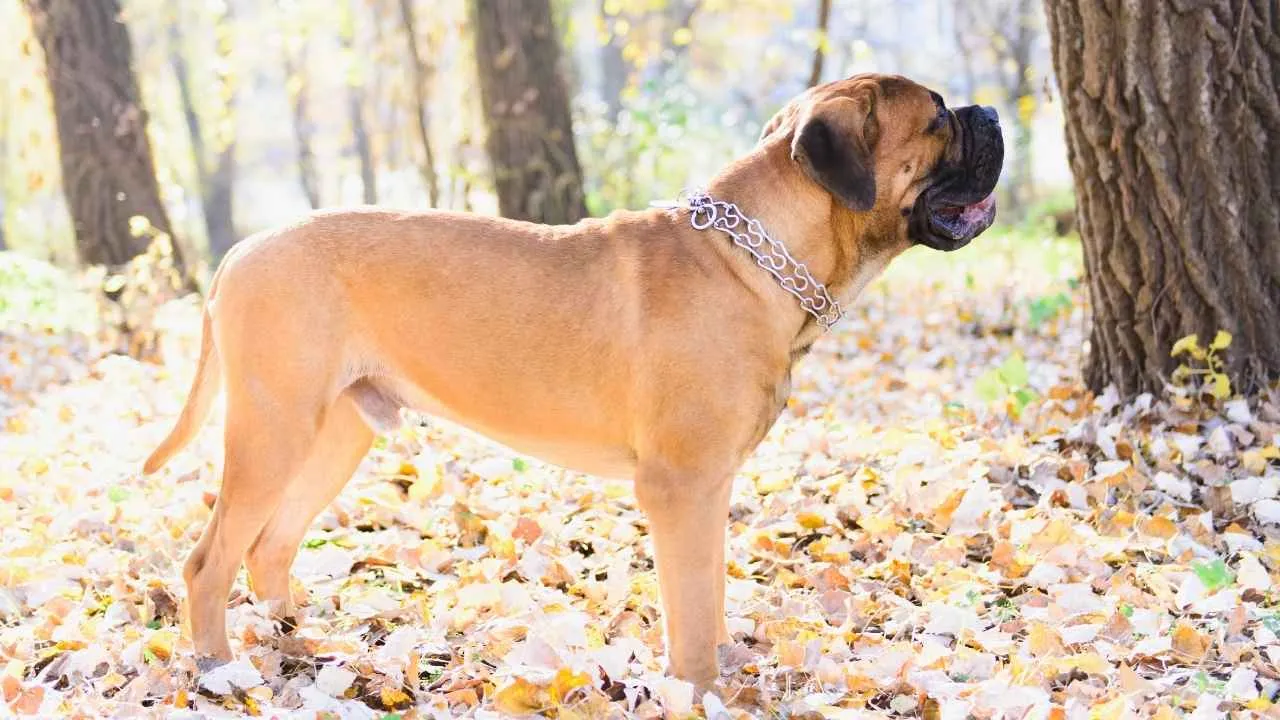
Bullmastiffs are known for their silent approach when handling intrusions, relying on strength rather than noise. They remain composed under pressure, holding their ground without needing dramatic displays. This control makes them trusted in serious guarding roles.
Effective Response from Good Training
Early and consistent training shapes the Bullmastiff’s protective instincts into reliable behavior. Structured sessions help reinforce calm responses and boundary recognition. Their natural memory helps them retain commands over long periods.
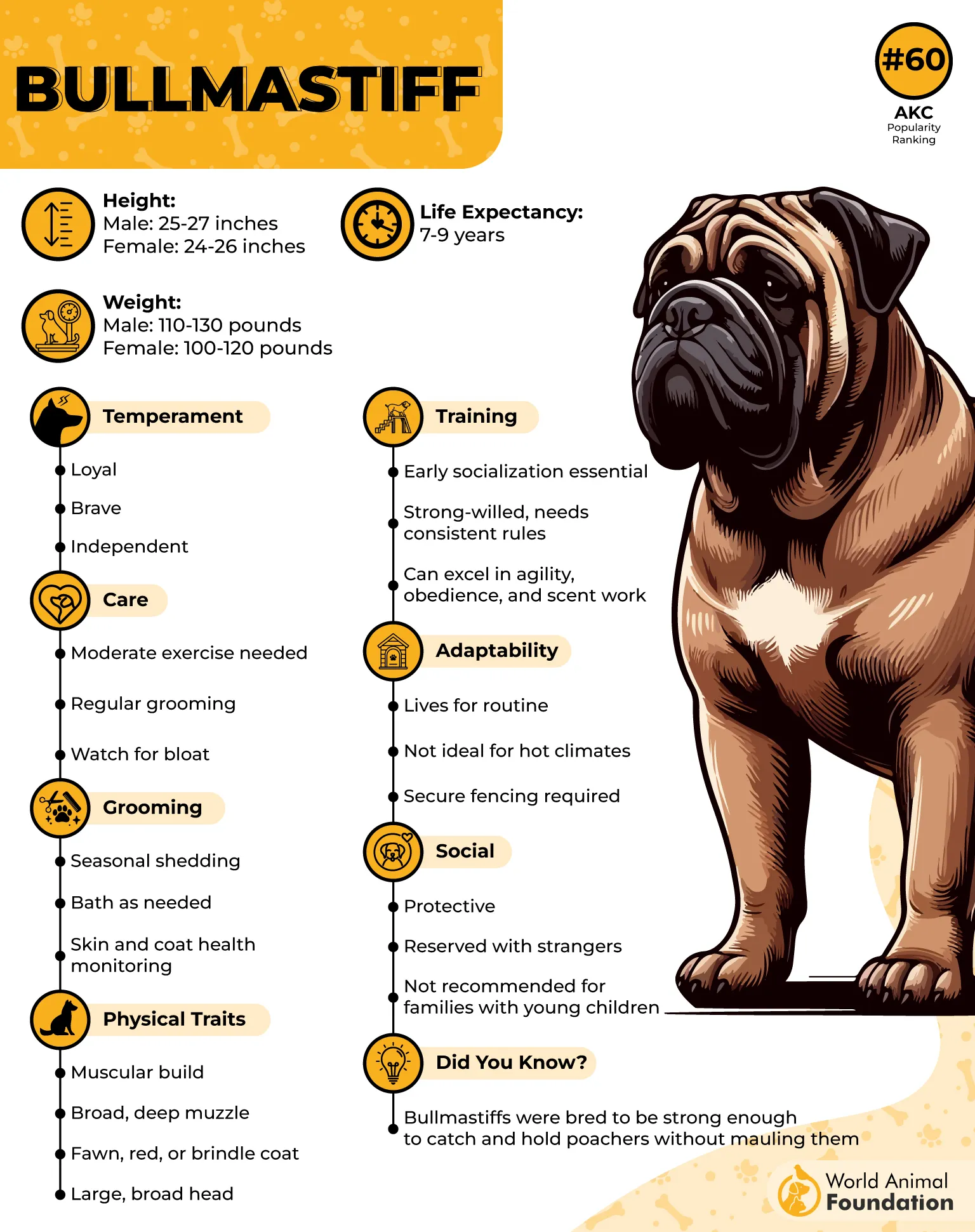
Balance Between Power and Stillness
They don’t require intense activity, but short daily exercise keeps their body active and posture steady. These sessions also help manage energy levels, especially in young adults. Their build favors controlled movement rather than constant motion.
Quiet Watchers Among Other Mastiffs
Among mastiff types, Bullmastiffs stand out for their quiet presence and ability to hold position without external cues. They assess situations with patience, stepping forward only when something genuinely calls for intervention.
Conclusion
Across fields, foothills, and farms, these breeds have earned their place not just through strength but through purpose. Whether facing off against wild animals or guarding homes after dark, they show steady focus.
Many carry a long history of working in isolation, handling heat, distance, and wild dogs with instinct, not fear. Some have a thick coat, others a leaner frame, but all serve the same role: livestock protection rooted in trust.
Though often called gentle giants, their power is clear when needed. For families seeking excellent guard dogs, especially ones with high energy or high prey awareness, these breeds stand ready, so long as they have space to move and enough tasks to avoid boredom.


